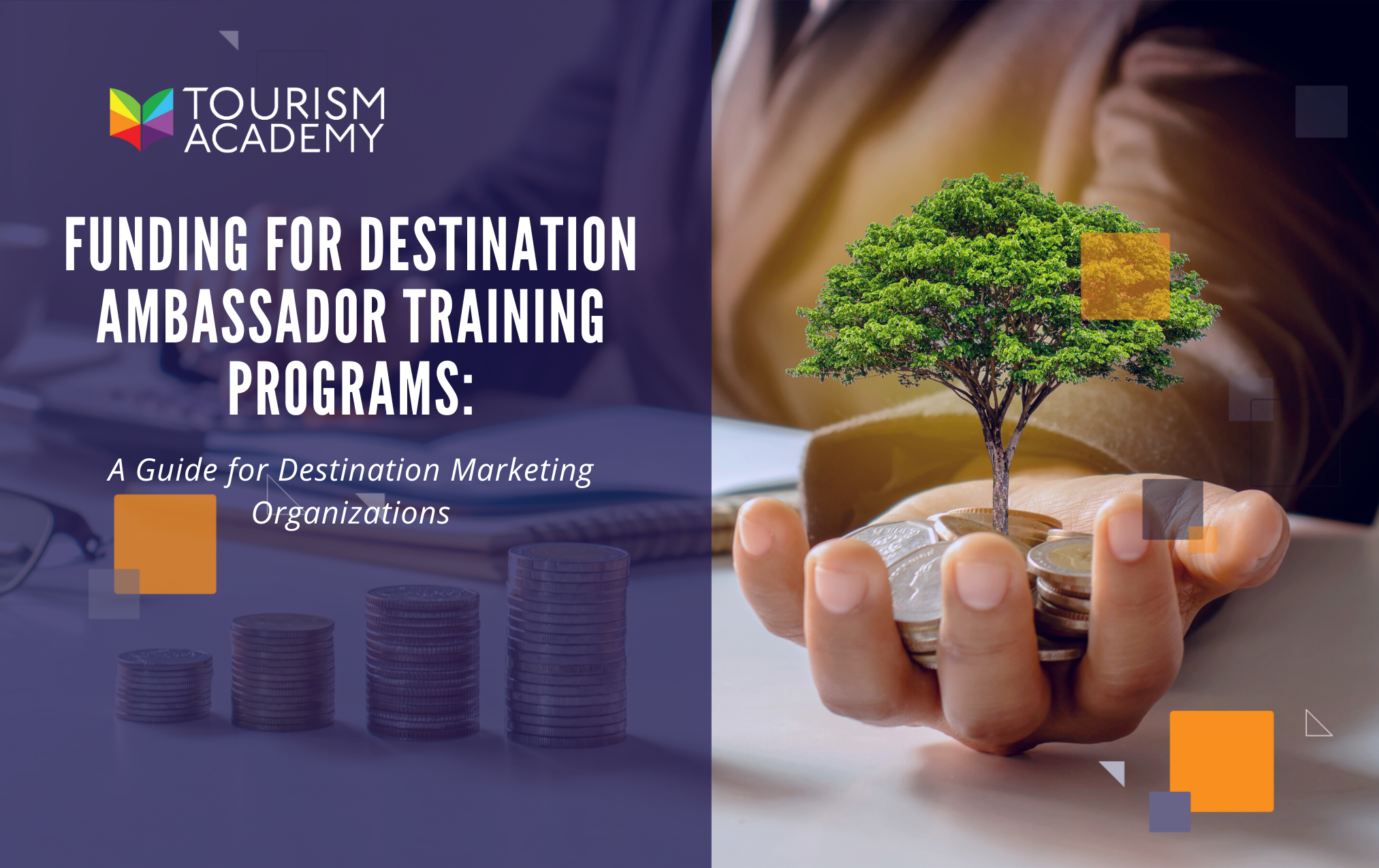
Funding for Destination Ambassador Training Programs: A Guide for Destination Marketing Organizations
Destination Marketing Organizations (DMOs) are crucial in promoting tourism and attracting visitors to their regions. To enhance the overall visitor experience and showcase what their destinations offer, DMOs often rely on well-trained destination ambassadors and tourism advocates. However, funding these training programs can be a challenge. This article provides a comprehensive guide to help DMOs secure funding for creating impactful training programs that empower their ambassadors and advocates to excel.
1. Assessing Funding Needs
Before seeking funding, DMOs must thoroughly assess their training program's needs and costs. This includes determining the scope of training, the number of ambassadors involved, the content required, and the anticipated duration of the training. A clear understanding of the financial requirements will help present a well-structured funding proposal.
RELATED: Efficiencies of Online Training
2. Identifying Potential Funding Sources
There are several potential funding sources that DMOs can explore to support their training programs:
-
Government Grants: Many governments and tourism departments offer grants to promote local tourism initiatives. Research the grants available at the local, regional, and national levels that align with your training program's objectives.
-
Private Sector Partnerships: Collaborate with local businesses, hotels, airlines, and other tourism-related enterprises. They might be interested in supporting training programs to enhance the tourism experience and attract more visitors.
-
Foundations and Nonprofits: Look for foundations and nonprofit organizations interested in promoting tourism, education, or community development. These organizations often provide grants or sponsorships for training initiatives.
-
Corporate Sponsorship: Approach corporations that benefit from increased tourism to your destination. They could receive exposure through promotional materials and events in exchange for financial support.
-
Membership Fees and Donations: If your DMO has a membership structure, consider using a portion of membership fees to fund training programs. Additionally, accepting donations from individuals who value tourism development can be a viable option.
-
Crowdfunding: Utilize crowdfunding platforms to gather support from a wider audience, including locals who understand the importance of promoting tourism in their region.
3. Crafting a Compelling Funding Proposal
Once potential funding sources are identified, creating a persuasive funding proposal is crucial. Your proposal should clearly outline the following:
-
Program Overview: Provide a detailed overview of the training program, including its objectives, curriculum, target audience, and expected outcomes.
-
Budget: Present a comprehensive budget breakdown that covers all expenses, including training materials, trainers' fees, venue rentals, marketing, and administrative costs.
-
Benefits: Highlight the positive impacts of the training program, such as improved visitor experiences, increased local engagement, and economic growth for the region.
-
Alignment with Funding Source: Tailor your proposal to the priorities and values of the potential funding source. Explain how their support will contribute to their own goals and objectives.
-
Measurement and Evaluation: Describe how you will measure the success of the training program and the impact it will have on the destination's tourism growth.
4. Building Relationships and Networking
Funding opportunities often arise through personal connections and networking. Attend tourism conferences, workshops, and industry events to connect with potential funders, sponsors, and collaborators. Building relationships can lead to partnerships that extend beyond financial support.
RELATED: Importance of Relationships
5. Leveraging Digital Platforms
In the digital age, online platforms can be powerful tools for fundraising. You can use social media, your DMO's website, and crowdfunding platforms to spread awareness about your training program and attract potential supporters.
Conclusion
Creating impactful training programs for destination ambassadors and tourism advocates is a strategic investment that can elevate the overall tourism experience and contribute to the growth of your region. By assessing your funding needs, identifying potential funding sources, crafting compelling proposals, networking, and leveraging digital platforms, your DMO can successfully secure the financial support needed to make your training program a reality. Remember that each funding source may have specific requirements, so tailor your approach accordingly. With dedication and a well-structured strategy, you can provide your ambassadors with the training they need to become effective advocates for your destination.


Leave a comment